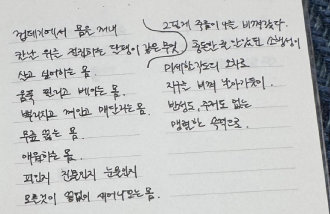Concerns about Korea's national image amid K-pop craze
Concerns about Korea's national image amid K-pop craze
Posted September. 27, 2023 08:04,
Updated September. 27, 2023 08:04
In a Sept. 15 interview with the Dong-A Ilbo, Victor Cha, senior vice president of the Center for Strategic and International Studies (CSIS) Asia and Korea Chair, expressed his surprise at the unprecedented level of American interest in Korean culture, something he had never experienced before nor expected to witness in his entire life.
During his speech on security cooperation in the Korean Peninsula and its outlook, he stressed the importance of 'soft power,' noting that he specifically wanted to point out. As a professor teaching international politics and Korean studies at Georgetown University, Cha said that when he first started his class on Korean studies 20 years ago, there were only five to six students, including some Korean Americans. He mentioned that last semester, the same class welcomed up to 50 students, with few being of Asian descent.
When he asked his students why they chose the class, only one cited an interest in security issues such as North Korean nuclear provocations. Two or three mentioned a desire to learn about a country that achieved democracy and high industrialization. The majority, however, enrolled due to their interest in 'K-pop.' He also shared the analysis of foreign language learning in U.S. universities and colleges by the Modern Language Association of America. According to the report, Korean was the only language that saw a more than 60% jump in learners over the past 10 years.
The newspaper inquired about the recent heated debate in Korea regarding the controversial Fukushima nuclear wastewater release. U.S. Representative Ed Case, from Hawaii's first congressional district, mentioned during a Sept. 14 interview that scientific data indicates the risk is now minimized. He noted that while there are some opponents in Hawaii, their numbers are fewer compared to Korea. The congressman attributed the strong opposition in Korea to local politics.
These views suggest that many Koreans might be overlooking objective perspectives on Korea while excessively fixating on the popularity of K-pop. Just last month, the government hastily organized a K-Pop concert to address mounting criticism stemming from the World Scout Jamboree in Saemangeum debacle. K-pop and the Korean Wave can no longer serve as a universal remedy for Korea's current challenges. Overindulgence in the craze for Korean pop culture may diminish Korea's national image.







